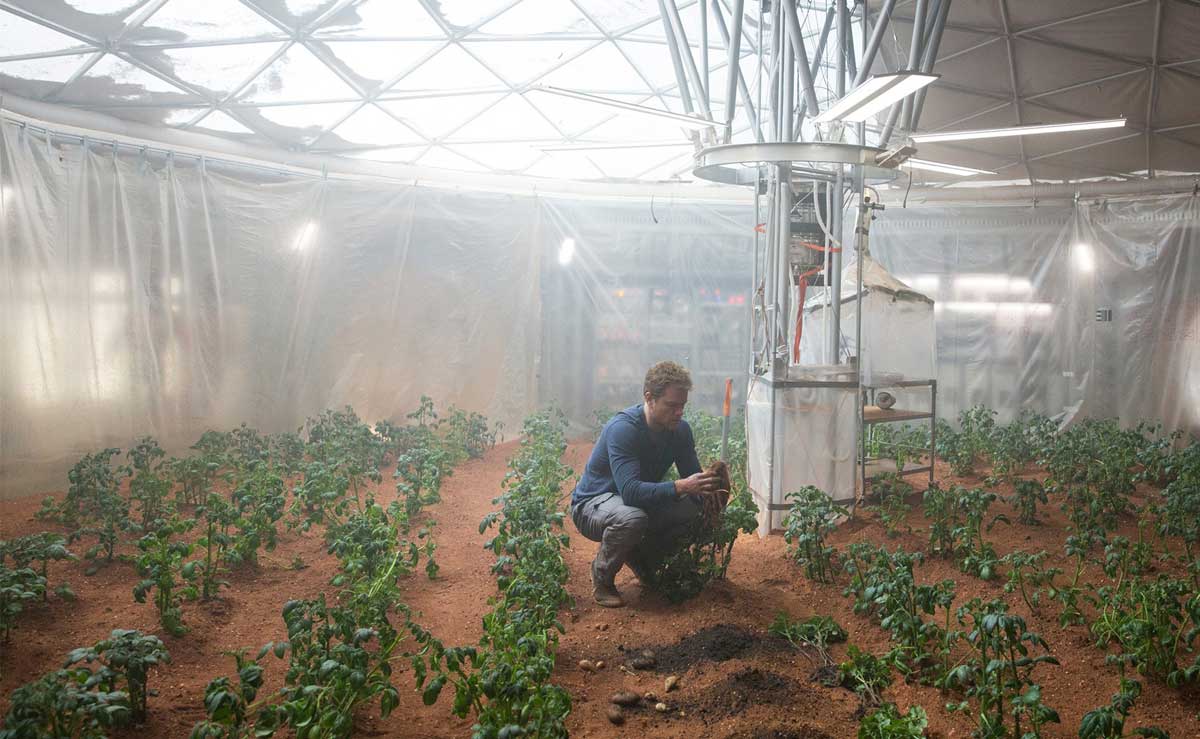
- This event has passed.
Producing Food in Space – with Dr. Thomas Matula
18 April 2022 @ 7:00 pm - 8:30 pm UTC

Perhaps the biggest impact space settlement technology will have on the Earth’s multiple environmental crises is in agriculture. Space habitats will have limited space to produce the food and will need to advance the technology for food production to achieve agriculture self-sufficiency. Controlled Environment Agriculture (CEA) is the next step in securing the human food supply and consists of moving plants into an enclosed environment in which lighting, water, temperature, nutrients and even the CO2 level in the air is optimized for the species being cultivated.
The water used is recycled within the system, reducing the water demand by up to 95%, critical for resolving the freshwater crisis which is impacting many agriculture regions. Since CEA is independent of seasonal cycles it is possible to produce crops continuedly ensuring a steady supply to markets. The result is a huge increase in crop yields by CEA, depending on the species, over existing agricultural yields. Perhaps the greatest impact of CEA will be on climate change as food production and transportation accounts for an estimate one-third of greenhouse gases (Gilbert, 2012). Because CEA is produced in a controlled environment it is able to use renewable energy instead of fossil fuels for the production of food. It also does not require either pesticides or herbicides because its isolation from the external environment serves as an effective barrier to weeds and insects. Since it is independent of the external environment it is also independent of climate zones, so the facilities for producing the food could be located near the demand for it, eliminating the global shipping of agricultural goods that currently accounts for large amounts of greenhouse gases. Finally, the increased yields resulting from CEA will enable the restoration of tens of millions of square kilometers of land to native ecosystems, a process that will not only reverse the extinction crisis but also provide for the sequestration of large amounts of greenhouse gases from the atmosphere.
…
Dr. Matula is an Associate Professor of Business Administration at Sul Ross State University – Rio Grande College. His research focus for the last 25 years has been on the economic space development, the most recent focus on lunar industrialization and the development of economically viable commercial space settlements. MBA, Ph.D. is Bachelor of Applied Science Program Supervisor at Great Basin College, Instructor Marketing and Management at Great Basin College, and Advisor / Investor at Astrosettlements. In his consulting work his focus has been on the application of innovations in the technology environment to business and the development of the space commerce industry. BGS in General Studies at New Mexico Institute of Mining and Technology in 1983. MBA in Management at New Mexico State University in 1986. He earned his Ph.D. in Business Administration at New Mexico State University in 1994 with the dissertation topic of Commercial Spaceports.
…
Follow the Live Stream on the Space Renaissance YouTube Channel: https://youtu.be/nXR_TP1cEAk
Click ‘going’ on the Facebook event: https://www.facebook.com/events/521684869567023/.
Click ‘going’ on the Facebook event: https://www.facebook.com/events/521684869567023/.